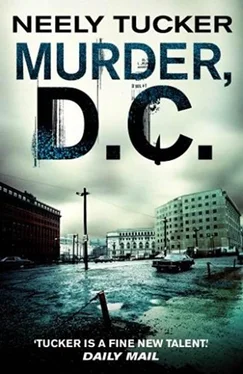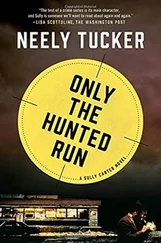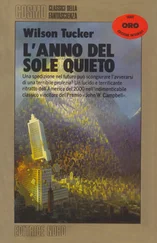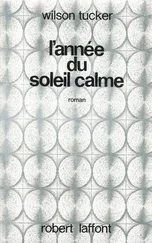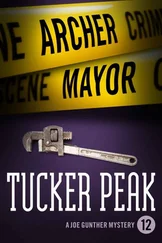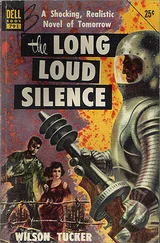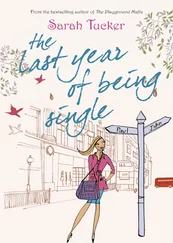He moved up the street, walking quickly, leaving the Dempsys, limping up the block toward South Capitol. That’s all stories were, and to catch them was an art akin to photography; you captured the image when it existed, or it was gone and all that was left were shadows and light and a vague feeling of unease that you were less than you had been before. Stories were what he clung to instead of religion, that having deserted him shortly after his parents had died, one after the other, his sister sent away.
Alexis skittered behind, having lingered with Mom for a last bit of conversation or photograph or some bit of alchemy known only to her.
“Why didn’t you tell her your mom was shot?” she said softly, coming up alongside him. “Or even Nadia, I mean. It would have been-”
“It’s not what she was asking,” he said.
“She asked if-”
“She wanted to have the upper hand,” he said, impatient now, waving his left arm, a windmill motion. “The question was just the staging. I told her my parents died, it gives her an opening to talk, to ask a question, to come up out of herself. She didn’t. She didn’t give a damn, and she shouldn’t. It’s her kid who’s dead, not mine.”
“But-”
“So, right there, you know she wasn’t going to bond . She wasn’t going to say, ‘Oh, so you know, just like me,’ and we hold hands and exchange Christmas cards. She wanted to tell me that I didn’t know shit, and she wanted me to say I was sorry. I did. Then she told me about Dee. That was the transaction. Plain as day.”
“Oh.”
“You’re not understanding how to ask questions.”
“Apparently not.”
“You’re not seeing this. I mention the personal, you see that? My parents, her kid, now I’m talking family-to-family. I broke the journalist-to-source wall. It’s not an interview. It’s survivor-to-survivor. So she’s got two options. She can hold my hand and tell me personal stories, or tell me to fuck off. She picked B. So I backed off, and then, hey, what do you know? She felt bad. So she told me personal stuff about Dee, once she had peed on my grief.”
Alexis, walking, her cameras bouncing into each other, the only noise other than traffic and their footsteps.
“So you played her.”
“Did I seem insincere to you?”
She thought. “No.”
“Then how did I play her?”
“Because you had thought out that exchange before she did.”
“I need people to tell me things. Personal things. So I encourage them to confide in me, and one of the ways to get people to feel instantly familiar with you is by mentioning one’s less-than-perfect family.”
“If you say so.”
“ I do not say so. It’s an act of human bonding, don’t you see that? I’m talking to her, I’m asking questions based on family relations. I’m not all, ‘Vomit out your personal details for me to exploit.’ I’m talking to her, person-to-person.”
“Okay, okay,” she said, looking over at him as they left the car behind, moving deeper in the neighborhood, toward the Bend. “I just hadn’t thought of it that way before. No offense.”
“None taken.” He blew out a breath. He had not thought of his mother’s killing in at least a week and it had rattled him.
“So what’s the plan now?” she said, hitching her lens straps over her shoulder, them coming to the street to cross, pausing for the light to change.
“The gay clubs, the strip up here on O Street,” he said, regaining some momentum, motioning forward and to his left, a low sling of the arm. “Our boy Billy was into it, or so says Elliot, his partner. There’s got to be a connection between those and the Bend.”
“What about Dee?” she said. “What was that back there? You mentioned a name and his mom threw us out.”
“Threw me out,” he said. “You were invisible. I said to her, I said, ‘Sly Hastings.’ I wanted to see what reaction it got.”
“Well, great. Now you know. It killed the interview.”
“Nah. I was done. Well. Since she knew who Sly was, then I was done. He’d been in that apartment. The way she looked at me? She’d seen him up close. And if she’s seen him up close, she was not going to gab to us any more than she already had.”
“So why’d you bring him up? You think he killed Dee?”
“Nah, see, no. Dee was in the M Street Crew. Everybody knew that. She didn’t have a problem confirming that. But I threw Sly out there to see if she knew of him, if she knew who he was. She did, and that confirmed for me the level this is at.”
“So this Sly.” She stopped to pull out a cigarette and light it. “What crew is he in?” Blowing out the smoke, concentrating, absorbing it all.
“Sly,” he said, “is in the crew of Sly. Those things are going to kill you, you know. Sly is, put it this way, like in South Sudan? He is the warlord of warlords. He is the dust, he is the shadow, he is the walking apocalypse. Dee was a secret employee of his. A mole. Somebody popped Dee and Sly isn’t happy about it.”
“So if somebody killed Dee, Sly’s boy, why is Mom afraid of him? Seems like he would be on her side, looking for who killed his guy.”
He shook his head, smiling, keeping up with her despite his gimp-legged walk. “You got to remember it’s entirely possible Sly killed Dee, because Dee fucked up or shorted him or God only knows why, and now he’s acting all innocent and shit.”
“Why would he go to the trouble?”
“Who knows? I’m not a drug lord.”
“You seem to know a lot about this Sly person,” she said.
“He is known to me, and I to him,” he said, trying to change the subject before she got too much into his business. “But what we’re doing now, right, is legwork. We’re heading up to the gay bars, the clubs, the dives on O Street. We need to know how some rich college boy got killed four days and about a hundred feet from a mid-level dealer like Dee. Billy was gay, he was at least semi-closeted. The only way he wound up in the Bend? My bet is that he had been down here in this neighborhood, in these clubs. Otherwise, he’d never have a reason to be within two miles of here.”
“Yeah?”
“This isn’t on the way to somewhere else, so, yeah.”
It was the smart money, he thought. The gay clubs in the slum of O Street, like R.J. said, were not here by happenstance. They had been forced out of their old haunts on Fourteenth Street NW and shoehorned here, by both development there and the anonymity of the neighborhood here -old, decrepit, impoverished.
They were coming up on the corner, the only pedestrians, the road itself six lanes wide. It looked barren, left for dead, but they were still less than two miles from the Capitol dome.
O Street itself was a block or so of low-slung warehouses that had once been carpet-cleaning businesses or storage facilities or some shit like that. Now it was an industrial zone that housed some of the most explicit gay clubs outside of San Francisco or Key West. Sully didn’t know all that much about the area, other than it was patrolled on party nights by gay ex-Marines from the nearby barracks on Eighth Street, who went by the nom de guerre GEMS (gay ex-Marines), and that nobody found these places by mistake.
“Let’s start with the Emporium,” he said, nodding toward a spot three doors down, the door painted lavender. “Might as well go door-to-door. You want to piggyback with me or split up?”
Alex flicked her half-burnt cigarette into the street and left it there, blowing out a stream of smoke. “After that bit with Dee Dee’s mom? Seriously? Split up. You run people off.”
***
The first two places were dead ends. The Emporium wasn’t open yet and the bartender in Secrets, the only guy in the place, told Sully to go fuck himself, asking about customers. He waited twenty minutes for the manager of Ziegfield’s to show, the guy finally coming downstairs and leading him up some narrow stairs to a cluttered office, offering him tea or coffee, then sitting down, listening seriously to him, and finally saying no comment. The guy eyeballing him, like he was gay and maybe just looking for a little action.
Читать дальше
